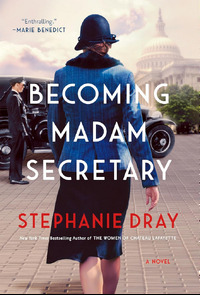 BECOMING MADAM SECRETARY |
|
 #SuspenseMonday
Pegasus Read Kindle PreviewIn a gripping World War II mystery set in Washington, D.C., a young naval intelligence officer goes undercover to solve a murder and prevent the Soviets from stealing the secrets of America’s atomic bomb project. Washington D.C., 1945. Victory in the war looms, but a new fear transfixes the wartime capital. Fear of communist spies and the atomic secrets they covet. When the corpse of a Navy Intelligence officer is found on a cobblestone back alley, Lt. Voigt is called in to investigate. It’s his first murder, but in the plot that he quickly begins unraveling, it won’t be his last. Pursuing crosses and double-crosses, Voigt goes undercover and the fragments he discovers (a defecting German physicist, a top secret lab in New Mexico, and Uranium-235) suggest something far larger than the usual spy v. spy shenanigans. Soon enough he’s in a race to identify the killer, to keep the bomb away from the Russians—and to keep ahead of his own secrets. Excerpt THE DEAD DON’T BLEED by David Krugler: Chapter 1 The alleys of Washington, D.C., are unlike those of any other city. Small carriage houses, one after another, abut the cobbled or clay backways. Within certain long, wide blocks, the alleys intersect, creating labyrinths as complex as a casbah. Here the two-story dwellings—woodframed and sorely in need of paint—pitch and lean, like a drunk who has stood up too fast. Stray cats slink along weed-choked walls, the stench of shit wafts from outhouses. Residents slump in rickety chairs and makeshift benches, drinking, throwing dice, sleeping. Here and there, scattered signs of neighborly pride. A vegetable garden tucked away, a whitewashed fence, a woman scrubbing her two-step stoop. Washingtonians who live streetside rarely venture into these slums pocketed dark and dank between the city and the capital. Why would they? “Maybe rolled?” suggested Terrance. His listless tone could hardly hold up the question mark. “Here?” I flicked my hand at the open windows of the dilapidated houses lining the alley south of M Street and west of Second Street, SE. Two young Negro boys watched us from a corner yard, thumbs hooked shyly at the corners of their mouths. Curtains fell back from an elderly Negro woman at a sill. Though it was 1 a.m., I doubted any of the alley dwellers were still asleep, but other than the two boys, no one had come outside. “Maybe it happened in one of these houses. He fights back, the buck pulls a gun—he and the whore drag him out front and hightail it.” I turned to the Detective Sergeant from the Metropolitan Police Department. He stood a few feet away, his brim pulled low. “Any prostitution here?” I asked. “Robberies?” He exhaled cigarette smoke, shook his head. Terrance and I looked down at the body. “He didn’t go easy,” said Terrance. On that he was right. Lieutenant junior grade Logan Skerrill, U.S.N., had fought hard. A deep scratch, congealed, swept down his cheek from his left eye. Blood matted his scalp and encrusted his nostrils, another cut slashed his chin. Torn shirt cuff, his pants smudged and scuffed. He had been a handsome man. Dark, curly hair, a little long in the front. Aquiline nose, jawline like a cutter’s prow. Six feet tall, maybe. Slim, but strong. Would take an even stronger, or very reckless, man to bring down Skerrill. “Why go to the trouble to beat up a man you’re gonna shoot?” I looked at the reddish brown stain across Skerrill’s shirt. “S’why we know this wasn’t a two-bit con or robbery,” I answered Terrance. “Someone wanted to hurt him first.” “Tough break. A month more, maybe, to this war, and he gets it back home in an alley.” The police photographer, a plump middle-aged man with a florid, sweat-slicked face, watched us expectantly. He had knotted his tie too high, his charcoal gray suit was wrinkled. “How much longer you think?” I asked. “Not long.” He shifted the bulky Leica in his arms. “Ten more minutes, probably.” Terrance and I stepped back from the body. The photographer leaned slightly over Skerrill’s feet and pointed the camera down, at the chest wound. Ka-plunk. The flash sounded like a billiard ball dropping fast and hard into a pocket. The light burst turned the body’s face a brilliant white and, for an instant, lit every crack, crevice, and gap in the alley cobblestones. The failure of the eyelids to clench shut was unsettling, and one pupil was larger and rounder than the other. I walked over to the police detective, a man named Durkin. A few years older than me, gray eyes, ruddy face traced with acne scars, reddish brown hair. “Takes awhile,” I commented, tipping my head at the photographer. Now he was standing close to the splayed fingers of Skerrill’s left hand, which lay palm-side up. “Yeah.” Durkin seemed to give further reply careful consideration first. “He’s good, though,” he finally said. “Maybe you could measure when he’s done.” He shrugged. “Yeah, okay.” Hands in his pockets, he walked slowly to the black Chrysler with the M.P.D. insignia on the door. Grit on the soles of his wingtips scraped audibly on the cobblestones. He leaned through the open passenger-side window to speak to the driver, a patrolman who hadn’t yet left the vehicle. Two other patrolmen stood by their squad car, chatting—no gawking bystanders to keep away tonight. Terrance ambled up, nodded toward Durkin. “How’s our boy?” “Unhappy. How much, hard to say.” He nodded absently. “We’re gonna need to estimate time of death.” “Me or you?” “I’ll do it. You can do the blood.” “Thanks a lot.” Grimacing. He patted me on the shoulder. “Give you something to talk about at your high school reunion.” “Lieutenant . . . ?” The photographer’s voice tapered off. “Voigt,” I answered. “Lieutenant Voigt.” “Yessir. I’m all through.” Terrance and I returned to the body. The photographer smiled nervously. “About the prints, Lieutenant Voigt, should I—” “Two sets,” I cut in. “Otherwise develop and log ’em like any other scene. We’ll get our prints from Detective Sergeant Durkin.” “Thank you, sir.” He nodded and walked back to the patrol car, passing Durkin. After the photographer loaded his gear into the back seat and got in, the car pulled away, the headlights reflecting off dark windows. Durkin was all business now. He strode to the body’s head and slipped a tape measure from his jacket pocket. He pointed to the alley dwelling behind me. “We’ll start there.” He extended the tape end toward me. I tugged it with me to the house’s front wall, pressed it to the bricks. Durkin snapped the tape taut and jotted the distance in his notebook. We repeated this routine, neither of us speaking, from the feet of the corpse and on the other side. Durkin took other measurements as well: length of the body, which lay crumpled on its right side, legs slightly bent, both arms extended; the width of the blood pool beneath the abdomen; the distance from the alley mouth, which he paced off, counting his steps. He returned, flipped his notebook to a new page, and started sketching the scene. Terrance, crouched beside Skerrill’s left arm, shot me an annoyed look. “We’re turning him,” he called loudly. Durkin raised his head briefly, nodded, busied himself again with the notebook. Terrance grasped Skerrill’s left shoulder and pulled, gently but firmly, and the slack, pliable body fell onto its back. Terrance slipped his hand under the arm for a moment. “Still warm. No rigor mortis.” “So in the last few hours?” He nodded and pointed to the dark pool of blood, now fully exposed. Looked at least twelve inches in diameter. “Try the pencil,” he said. Gingerly, I dragged a pencil tip through the blood while Terrance held his flashlight. The track of the pencil remained on the surface of the pool. “See how it’s dry around the edges?” he asked. “Been clotting two, three hours, I’d say.” “This a lotta blood?” “Depends on how many times he was shot. One thing for sure, he didn’t die right away.” “How do you know?” Terrance gestured at the stain covering the bricks and filling the mortar lines. “Because the dead don’t bleed.” Crouched beside my partner and the body, I surveyed the alley. The two young boys were gone. This close to the ground, the shadows cast by the lone streetlight spilled across the alley like ink blots. Weeds, garbage, slum—if Logan Skerrill had been conscious when he fell to the bricks, his last view of this world wasn’t pretty. I reached into the front left pocket of Skerrill’s chino trousers, found only a few coins and a book of matches. The back pocket was empty. Terrance checked his right pockets. No wallet, just a silver clip of cash, and Skerrill’s identification card. “Traveling light,” Terrance murmured. “Could’ve had a satchel or briefcase with him,” I suggested. “Killed over it? Maybe.” He quickly counted the bills in the clip. “Thirty-two bucks—so not a robbery.” Durkin leaned in. “What’d you find?” Terrance showed him the clip and ID and said, “Change and matches too.” Durkin scribbled this down. “So not a robbery.” “No kidding,” Terrance replied flatly. I stood up slowly. I had eight inches, easy, on Durkin—I gauged him at about five foot six. “How long till the wagon gets here?” He peered past my left shoulder, as if the coroner was just now pulling into the alley. “I told them we’d be a while.” “Then let’s start the canvass. Be sure to ask when they got home.” I pointed to the north side of the alley. “You can take those houses.” He walked off, just slow enough to be noticeable. Terrance sighed heavily and rose to his feet, briskly swept dust from his trousers. “My clairvoyant powers have already told me what we’ll get.” He closed his eyes and rubbed his temples with his fore- and middle fingers. “Nah suh, didn’t see no’ hear nothin’,” he drawled. He was right—we got nothing. No surprise. Half-a-dozen cops and two uniformed naval officers, all white, had descended on a Southeast alley in the middle of the night because a white man turned up dead. What’d we expect, a confession? Most of the Negroes muttered one or two-word replies. Did you hear men fighting? “Nah.” Shots? “Nah, suh.” When did you get home? “Don’ remember.” “Think a colored cop might get something?” Terrance asked, exasperated, when we reached First Street. I shook my head. Durkin finished a few minutes after us. The residents had stonewalled him, too. “That it?” he asked me. “Your men looked for casings, right?” “Nothing. Too dark.” “So then we’re just waiting for the coroner.” “Need me for that?” Terrance suppressed a snort. “Hell, coroner shows up and there’s a body and no M.P.D.—he’ll think we did it.” Durkin failed to hide his annoyance at letting himself be shown up. “I’ll check on the wagon.” He strode back to the remaining police car. Terrance grinned broadly. “If I’m not mistaken, he wanted to leave us out here by our lonesome.” “I’m sensing his spirit of wartime cooperation is fading as fast as the Nazis.” “Wait’ll tomorrow when we ask for the photos. He’s just getting started.”
Terrance and I were investigators for the Office of Naval Intelligence, the O.N.I. A murder shouldn’t have come our way—we worked in B-7, the Sabotage, Espionage, and Countersubversion section. Terrance had been a cop in Pittsburgh before the war but he’d only been a detective for a few months before getting his Navy commission. And this was no ordinary killing, as we had just learned. Commander Burton Paslett, our section chief, had called us to his office at the Main Navy Building an hour earlier. “Know that alley on the west side of the Navy Yard, runs alongside M?” he asked. “No, sir,” I said. Terrance shook his head. “You will soon.” Paslett leaned back in his wooden chair, the steel swivel creaking loudly. He was about fifty-five, his close-cropped hair almost fully grey. The years had padded his cheeks, added a dewlap beneath his chin, but the lean face of his youth was still visible. “Not till the morning, right, sir?” Terrance asked slyly. “It is morning.” He motioned us to sit. “Just got a call from the Chief of Detectives for D.C. Seems one of ours turned up dead there.” “If he’s in an alley, he’s theirs,” I said. “Any other alley, sure.” Terrance and I exchanged confused looks. Then my partner exhaled loudly, reached in his jacket for cigarettes. “Somehow this alley is part of the Navy Yard.” Nodding, Paslett said, “We bought the parcel between Second and First last year. All the homes are gone except the block along M and its alley houses. They’re due to be razed but it hasn’t happened yet.” “M.P.D. knew all that, sir?” I asked. No answer, his impatient look my rebuke. I should’ve noticed the bound folio of Sanborn Insurance maps and the oversized diagram of the Navy Yard on the corner of the desk. “So why do we want this murder, sir?” Trying to redeem myself. “Because of the victim, Lieutenant j.g. Logan Skerrill.” Paslett looked at me. “You knew him, didn’t you, Voigt?” A statement, not a question. I blinked, my mouth open—Skerrill was the victim? I sure had known him, not as a friend, but as a fellow recruit. “Yessir, we went through the Funhouse together,” I answered Paslett. The Funhouse. Coney Island. The Carnival. All slang for the O.N.I.’s training program for undercover work. The facility, coincidentally located at the Navy Yard, was housed in an enormous aviation hangar and featured mock-ups of apartments, offices, and even a Hollywood-quality street stage to teach aspiring operatives how to pick locks, search rooms, and shadow marks. Paslett asked, “How well did you get to know him?” Showing mild curiosity, but he must’ve studied my service jacket and Skerrill’s before summoning Terrance and me. Which meant the commander knew precisely when Skerrill and I were at the Funhouse, who our training officers had been, how much contact we’d had. “I didn’t much care for him, sir, so I avoided him.” “Why didn’t you like him?” “He was too good, sir. A real natural. He coulda been a locksmith, the way he could get through doors, and he is—was—a natural-born actor. Put on covers as easily as hats.” “His ratings sure showed that.” “’Specially compared to Voigt’s, huh?” Terrance chipped in, grinning crookedly. The commander shot him a look, but my partner was right. “Lotta men get tight in the Funhouse,” Paslett said. A question, not a statement. “Not us, sir. Sure, we’d end up in the mess together, we’d shoot the breeze there, maybe we went out with the boys a coupla nights.” “Maybe?” The commander squashed conditional answers like the rest of us smack cockroaches. “Did go out with him and the boys, sir. To Borland’s.” Terrance chortled—Borland’s was a burlesque club off M Street, well known for serving bountiful cheesecake to bluejackets. “Where you didn’t spend much time talking, you and Skerrill.” “Nosir.” “When you shot the breeze at mess, what’d you talk about?” “I guess—I recall once we talked about how we came to join the Navy, sir.” “And what do you recall about Skerrill’s answers?” “He made a joke. Said he ran away to sea to go whaling but they don’t have whalers anymore. So he joined the Navy instead.” “Made a lotta jokes, Skerrill?” “Yessir. Another reason I didn’t like him. Everything came so easy to him, all seemed like a big joke to him.” “You felt like he was laughing at the rest of you.” I hadn’t thought about it that way, but the commander had pegged it. Rest of us, all clowns, to Skerrill. “Yessir.” “Well, he sure ain’t laughing now,” Terrance remarked. “Where was Skerrill assigned, sir?” I asked. “OP-Sixteen-Z.” The Special Activities Branch. “This last year he liaised with Army intelligence. To give you an idea of what the director thinks of him, he posted him with the Bermuda Special.” Terrance gave a low whistle. The “Bermuda Special” was the nickname for a cruise a destroyer had made from Newport News, Virginia, the previous October. Five officers from O.N.I., all Special Activities, had been detailed to the cruise, which the War Department had overseen. Usually when Army asks Navy to help carry its water, plenty spills along the way. Not this time. Word spread fast—gossip this, earn a long billet in the Aleutians. The vessel and crew, and whatever was aboard, had disappeared into the Atlantic and didn’t return for several weeks. Paslett continued, “Before that, Skerrill helped run the Mexican op that flushed out mercury smugglers for the Japs.” “What was he doing lately, sir?” I asked. “Supposed to be running background on a couple of new Amtorg arrivals.” Amtorg was the Soviet Union’s trading company in the United States. Ever since we’d entered the war, the Soviets had seeded agents and spy contacts among Amtorg’s staff. “Supposed to?” This from Terrance. “Seems our Lieutenant Skerrill wasn’t his usual crackerjack self on this one. Spotty reports, no progress, kept raising doubts about his subjects.” “He didn’t think they were spies,” I said. “Right. But I have it from a good source that these two Reds were in it deep. So why did Skerrill suddenly go soft?” “Blackmail?” I suggested. Terrance nodded vigorously. “Bet he was a fairy, Reds sussed him out.” Scowling, Paslett said, “Cross-checks usually found him tumbling out of some G-girl’s bed the next morning. Doesn’t sound like a swish to me.” “You think Amtorg’s behind this, sir?” I asked. Paslett thought for a moment. For the chief of an O.N.I. section, his office was modest. Had his share of citations, but none hung on the wall, just a photograph of him and his wife and daughters. His expansive desk was clean, orderly, polish reflecting the overhead light. “Amtorg’s got balls, but they’re not stupid,” the commander said. “Murdering an O.N.I. lieutenant, that’s a shitstorm they don’t want.” “So it’s not the commies, sir,” Terrance said carefully. “I didn’t say that—I just said I didn’t think it was Amtorg.” He paused, we waited. “I’m gonna share something with you boys you gotta keep to yourselves. The Reds aren’t using Amtorg like they used to. Early on, sure, they shipped in spies like United Fruit brings in bananas. But it’s too obvious to keep that up. The Russian embassy and the N.K.V.D.”—Soviet secret police—“know we’re tracking every single Russian who comes in with Amtorg stamped on his visa. Now, does that mean the Reds are winding down their ops here? War’s about to end, they’re just gonna close up shop and go home?” We knew better than to answer—when the commander got going on the Reds, best you wind your watch and settle in. “So how are the Reds doing it now, how are they infiltrating? I just had a confab with Army SigInt—they picked up a helluva spike in the Russians’ cable traffic. They’re working round-the-clock on the code, no luck yet. Now I don’t think they’ll ever break it, but that’s not my point—fact that the cables are up fifty percent tells us something, doesn’t it?” We nodded dutifully. “So forget Amtorg,” Paslett finished. “Reds seeded new plants years ago, now they’re reaping bumper crops.” “You think Skerrill was a Red spy, sir?” Terrance asked. “I don’t know—yet. But I think Skerrill getting killed after going soft on Amtorg isn’t a coincidence. And you two are gonna find out if I’m right.” “Sir, if I may . . . ?” Paslett nodded curtly at me. “If Skerrill was a Russian plant, wouldn’t him waffling on this Amtorg investigation be a dead giveaway? To keep his cover, he’d be gung-ho. Especially if Amtorg’s no longer the espionage front it was. Like you said, sir.” Being a bright penny earned me a tight smile. “Very good, lieutenant—guess you learned a thing or two at the Funhouse. Normally, yes, the plant would keep his cover at all costs. But I think something went wrong. Skerrill encountered someone he knew at Amtorg, and he panicked.” “Sir, that shouldn’t happen,” Terrance put in. “Cells are supposed to be isolated, and no one’s better at that than the Russians.” Paslett’s withering look caused my partner’s shoulders to slump an inch or two. “I did say something went wrong, didn’t I, Lieutenant Daley?” “Yessir.” “And for the record, we’re better at operational security than the Russians.” “But sir, then who would want to murder Skerrill?” I put in. “Jesus, you two—do I gotta fetch a towel so you can dry off behind your ears? If Skerrill panicked and exposed himself, the Reds would bump him off to keep all the other plants protected.” He thumped his desk. “Fifty percent increase in cable traffic! They’re not sending happy birthday wishes to Uncle Joe, goddammit. SigInt says most of that increase is outta the Russian embassy right here in D.C., and the consulate in New York’s a close second. The Reds are on to something big in our yard, and we’ve gotta find out pronto—before the war’s over.” “Yessir,” we unisoned. “Now, I want you to let the D.C. boys do their routine but never let ’em forget who’s in charge. I want you turning Skerrill’s life upside down for any connection to the Russians. If you don’t find one—and you damn well better look long and hard—then we’ll drop his murder back in the M.P.D.’s lap as fast as we snatched it away.” “Sir, what if what we find takes us to the Bermuda Special?” I asked. “If there are holes you need filled, I’ll fill them.” He glanced at his watch. “You need to get to the scene. Take this.” He slid Skerrill’s service jacket across the desk. We stood up, I picked up the file, we turned to go. Paslett spoke before we opened the door. “Sixteen-Z raised holy hell about us taking this. I had to call in a marker the director’s owed me for a while. A lot of fellas are going to be watching you close, sniffing around. But this needs to be our own little Bermuda Special, got it?” We got it.
The coroner’s wagon arrived at the scene at 3 a.m. I helped the driver roll Skerrill onto a stretcher and load him up. Terrance told Durkin we’d call him later that day, after we got a little sleep and reviewed Skerrill’s records. Night sky just paling, wrens and robins stirring as I went home. I had a basement flat in a row house on Caroline Street, just off Fourteenth Street, in Northwest Washington. A friend of my pop’s, a sour German named Kleist, owned the house. Years ago, back in Chicago, Pop must have done something awful nice for Kleist, because he let me have the joint all to myself. In wartime Washington, your own place was as scarce as nylon stockings or copper pipes. Kleist glared at me every month when he collected the rent, like he was trying to eyeball me into three tenants and a lot more moolah. A short set of cement stairs led to my door. Small front room, iron bars on the windows. Just one bedroom, long and narrow, parallel to a hallway leading to a galley kitchen and toilet with a shower stall. No stove, just a two-burner hotplate and a small icebox. Came with a fourth-hand sofa, battered easy chair, wobbly table, decent-enough bed. Franklin D. barely lifted his head from his paws when I came in. A brown and white tabby, a stray I’d coaxed in from the alley colony to take care of the mice that scrabbled behind the walls at night. He was a decent mouser, though sometimes I had to leave his food bowl empty to motivate him. Tilted his head at my scratch, went back to sleep when I walked to the kitchen. I grabbed a beer from the icebox and double-popped the can with the opener dangling from a nail. After prying off my brogans, I stretched out on my mattress and stared at the roughly plastered ceiling. Took a long pull of my beer. If I ran B-7, I’d let the M.P.D. keep this case lock, stock, and barrel. Hell, I’d never done police work. Just because the murder had occurred on property the Navy had a claim on didn’t mean O.N.I. had to take the case, even with the victim being an officer. Paslett’s instincts were good, but sometimes he got carried away. He saw Reds around every corner, and his paranoia had only deepened as the end of the war approached. There were a thousand and one reasons why Skerrill might have been killed on this particular night in late April 1945, and Paslett’s hunch that Skerrill might be a Russian plant looked like awful weak tea to me. But then, Paslett had Commander in front of his name; Terrance and I just had Lieutenant j.g. I drained my beer and set the can on the floor. I suppose anxiety over investigating a murder with barely a clue as to how to go about it should’ve kept me awake, but during war, when you’re safely stateside, you don’t sacrifice what precious time you have for sleep to fret about the dead. Start Reading THE DEAD DON'T BLEED Now
Our Past Week of Fresh Picks
LIMITED FIRST PRINT RUN--ALL first edition copies will be signed by the author! Signed copies available only for a limited time and while supplies Read More »
It’s a thin line between love and love-hating. Katie Vaughn has been burned by love in the past—now she may Read More »
There are no rules this cruel summer…“I think we should see other people…” That one sentence unravels Samantha Parker&rsquo Read More »
THE DEATH MASK From #1 New York Times bestselling author Iris Johansen comes a new thriller starring Eve Duncan as she races against time to protect her beloved Read More »
Set in the art world of 1970s London, The English Masterpiece is a fast-paced read to the end, full of glamour and Read More »
Detective Arkady Renko—“one of the most compelling figures in modern fiction” (USA TODAY)—returns in this tense thriller set amid Read More »
Eat Post Like is a heartwarming debut novel of self-discovery, resilience, and the transformative power of food.Cassie Brooks has her life all Read More »
In this million-copy international bestseller from Korea, the owner of a corner store takes in an unhoused man who does a good deed, a Read More »
|
|
| |||
|
||||




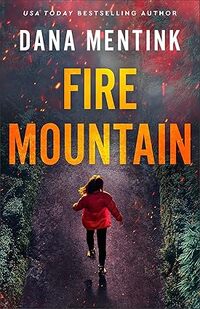


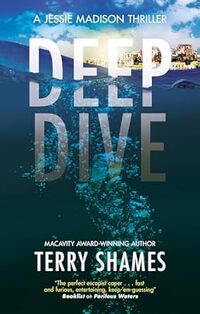

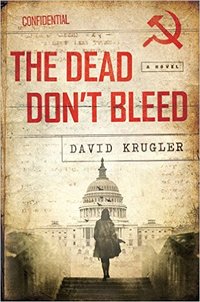


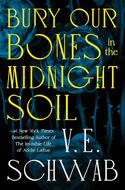



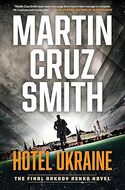

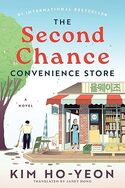
 © 2003-2025
© 2003-2025